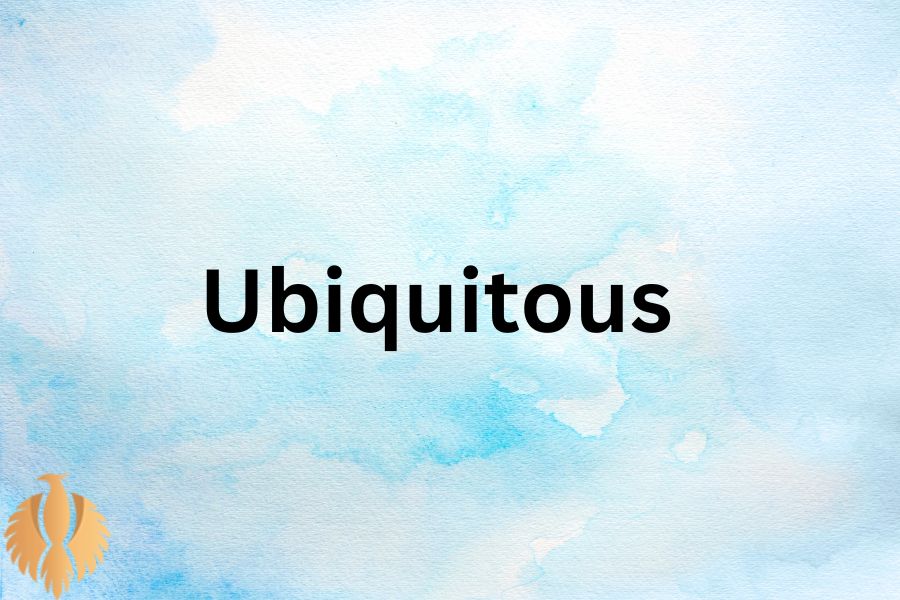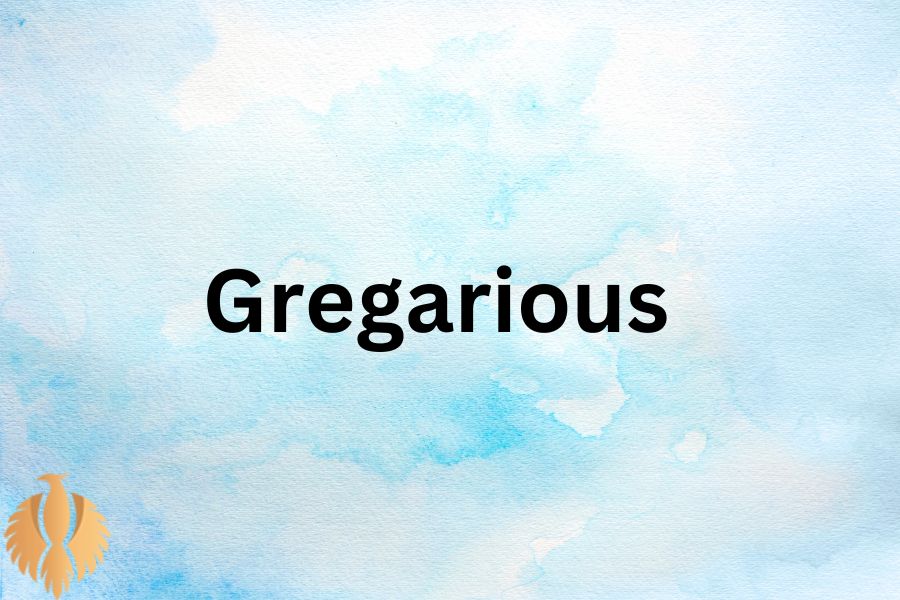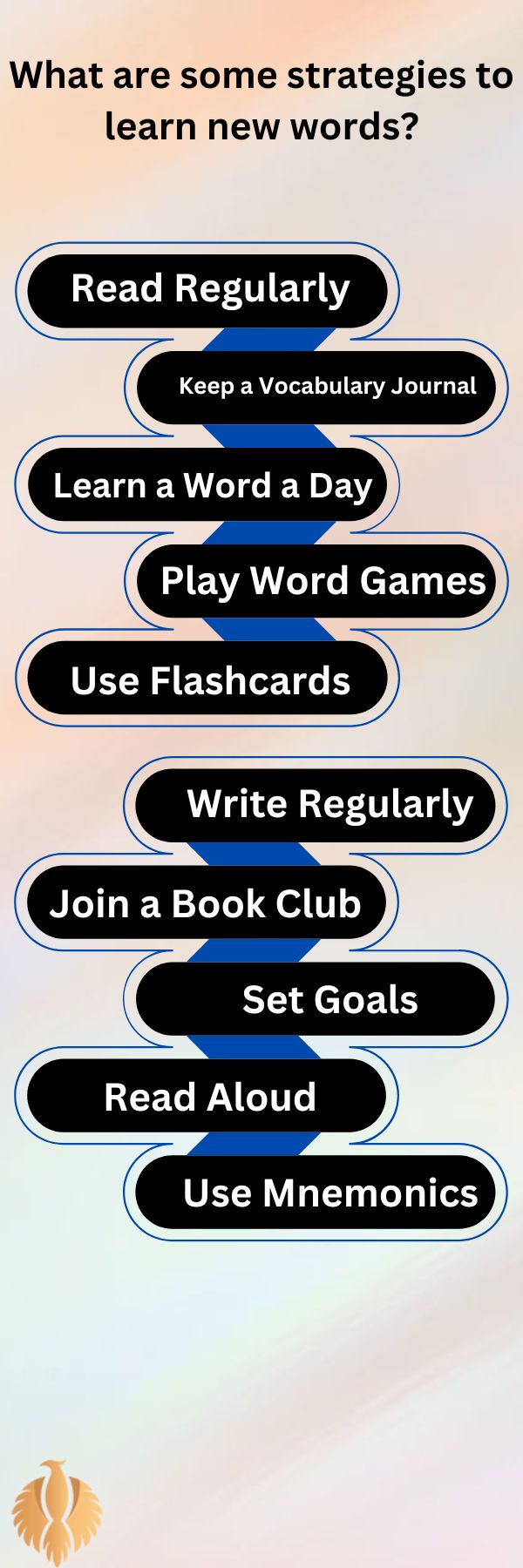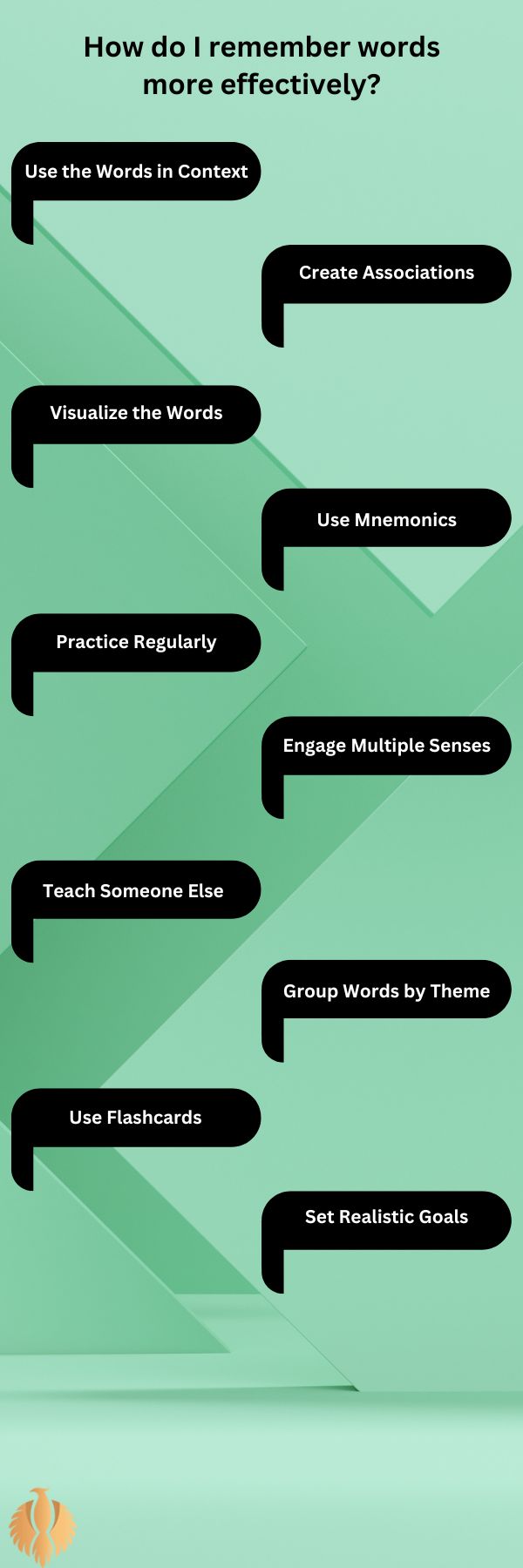Improving vocabulary is a fantastic way to enhance communication skills and express oneself more clearly and effectively. Here, I’ll share 20 of the most used words to improve your vocabulary.
-
Eloquent

Example: “I always admired how eloquent my friend Zara was during our debates. Her ability to articulate her thoughts so clearly and persuasively left everyone in” awe.
-
Ephemeral
Example: “Life is ephemeral, much like the cherry blossoms that bloom briefly in spring. I often remind myself to cherish each moment, knowing how fleeting they can be. “
-
Serendipity
Example: “Meeting Alex at the bookstore was pure serendipity. We both reached for the same novel, and that chance encounter led to a lifelong friendship.”
-
Quintessential
Example: “My grandmother’s apple pie is the quintessential dessert for family gatherings. Its perfect balance of sweetness and spice makes it a timeless favorite. “
-
Ineffable
Example: “The beauty of the sunset over the Sevan Lake was ineffable. No words could capture the breathtaking colors and the sense of peace it brought me.”
-
Ebullient
Example: “Whenever I think of my cousin Leo, I picture his ebullient personality. His infectious enthusiasm and energy light up any room he enters. “
-
Luminous
Example: “The night sky in the countryside is luminous with stars. I often find myself gazing up, feeling a sense of wonder and connection to the universe. “
-
Mellifluous
Example: “Listening to Clara sing is a mellifluous experience. Her voice flows so smoothly and sweetly, it’s like honey to the ears.”
-
Resilient
Example: “I’ve always admired how resilient my friend Maya is. Despite facing numerous challenges, she remains strong and determined, never giving up.”
-
Ubiquitous

Example: “Smartphones have become ubiquitous in our daily lives. It’s hard to imagine a time when we didn’t have instant access to information and communication.”
-
Inept
Example: “During my first cooking class, I felt completely inept. But with practice and patience, I gradually improved and even started to enjoy it.”
You might also enjoy: I’ll Take Your Word For It – Grammar + Examples
-
Voracious
Example: “I have a voracious appetite for books. I can spend hours in a library, devouring one novel after another, always hungry for more stories.”
-
Cacophony
Example: “The city streets are often filled with a cacophony of sounds. Yet, amidst the noise, I find a certain rhythm and energy that I love. “
-
Aesthetic
Example: “My friend Nina has an incredible aesthetic sense. Her home is a beautiful blend of colors and textures, creating a harmonious and inviting space.”
-
Benevolent
Example: “Mr. Thompson, our neighbor, is known for his benevolent nature. He’s always willing to lend a helping hand and support those in need.”
-
Cognizant
Example: “Being cognizant of my surroundings is something I strive for. It helps me stay present and appreciate the little details in life.”
-
Disparate
Example: “The twins, Emma and Ethan, have disparate interests. While Emma loves painting, Ethan is passionate about coding, yet they share a strong bond.”
-
Ebullient
Example: “I felt ebullient when I received the acceptance letter from my dream university. The joy and excitement were overwhelming.”
-
Furtive
Example: “My cat, Luna, has a furtive way of sneaking up on me. One moment she’s not there, and the next, she’s curled up on my lap.”
-
Gregarious

Example: “My friend Sam is incredibly gregarious. He thrives in social settings and has a knack for making everyone feel welcome and included.”
What are some strategies to learn new words?

Learning new words can be both fun and rewarding! Here come some strategies that will help you expand your vocabulary:
-
Read Regularly
Reading a variety of materials, such as books, articles, and blogs, exposes you to new words in context. Try to read genres and topics that interest you to keep it enjoyable.
-
Use a Dictionary and Thesaurus
If you encounter a word, you are not familiar with, make sure to search for it in a dictionary. A thesaurus can also help you find synonyms and understand the nuances of different words.
-
Keep a Vocabulary Journal
Write down new words you encounter along with their definitions and example sentences. Consistently revisiting this journal can enhance your understanding.
-
Learn a Word a Day
Commit to learning one new word each day. Utilize this information in your sentences and make an effort to integrate it into your daily conversations.
-
Engage in Conversations ️
Talking with others, especially those with a rich vocabulary, can introduce you to new words. Don’t hesitate to ask about words you don’t know.
-
Play Word Games
Games like Scrabble, crossword puzzles, and word searches can make learning new words fun and interactive.
-
Use Flashcards
Create flashcards with new words on one side and their definitions on the other. It is important to regularly revisit them in order to strengthen your memory.
-
Watch Movies and TV Shows
Watching movies and TV shows, especially those with rich dialogue, can help you learn new words in context. Subtitles can be particularly helpful.
-
Write Regularly
Crafting essays, narratives, or journal entries can assist in honing your vocabulary skills. Try to incorporate recently learned vocabulary into your writing.
-
Join a Book Club
Joining a book club can motivate you to read more and discuss new words with others. It’s a great way to learn in a social setting.
-
Use Language Learning Apps
Apps like Duolingo, Memrise, and Anki can provide structured vocabulary lessons and practice.
-
Set Goals
Set specific goals for your vocabulary learning, such as learning a certain number of words per week. Well-defined targets can serve as a source of motivation.
-
Practice with Native Speakers
If you’re learning a new language, practicing with native speakers can help you learn colloquial and commonly used words.
-
Read Aloud
Reading aloud can help you better remember new words and understand their pronunciation and usage.
-
Listen to Podcasts and Audiobooks
Listening to podcasts and audiobooks exposes you to new vocabulary and helps you understand how words are used in different contexts.
-
Use Mnemonics
Create mnemonic devices to help remember the meanings of new words. Associating words with images or stories can make them easier to recall.
-
Review Regularly
Regular review is crucial for retaining new vocabulary. Set aside time each week to go over the words you’ve learned.
-
Engage with Online Communities
Join online forums or social media groups focused on language learning. Engaging with others can provide new insights and vocabulary.
-
Take Vocabulary Quizzes
Online quizzes can test your knowledge and help reinforce what you’ve learned. They can also highlight areas where you need more practice.
-
Stay Curious
Always be curious about words and their meanings. Cultivating a love for language and learning can make the process enjoyable and rewarding.
By incorporating these strategies into your daily routine, you can steadily build a richer and more diverse vocabulary.
You might also enjoy: Top 100 Commonly Used Words That Start With J [2024]
How do I remember words more effectively?

Remembering new words can be challenging, but with the right techniques, it can become much easier. Here are some strategies to help you retain new vocabulary more effectively:
-
Use the Words in Context
Using new words in sentences helps you understand their meaning and how they fit into different contexts. For example, if you learn the word “gregarious,” you might say, “My friend Sam is very gregarious; he loves social gatherings.”
-
Create Associations
Link new words to something familiar. For instance, if you learn the word “serendipity,” you might associate it with a happy accident, like finding money in an old coat pocket.
-
Visualize the Words
Create mental images for new words. If you learn the word “luminous,” picture a bright, glowing light. Visualization can make the word more memorable.
-
Use Mnemonics
Mnemonics serve as tools to assist in recalling information more easily. For example, to remember the word “ephemeral,” you might think of a mayfly, which has a very short lifespan.
-
Practice Regularly
Regular practice is key to retention. Review your vocabulary journal, flashcards, or word lists frequently to reinforce your memory.
-
Engage Multiple Senses
Incorporate different senses into your learning. Write the words down, say them out loud, and listen to them being used in sentences. Engaging multiple senses can enhance memory.
-
Teach Someone Else ️
Teaching new words to someone else can reinforce your own understanding and memory. Explain the word’s meaning, use it in sentences, and discuss its nuances.
-
Group Words by Theme
Grouping related words can help you remember them better. For example, you might group words related to emotions, such as “ebullient,” “melancholy,” and “elated.”
-
Use Flashcards
Flashcards are a great tool for memorization. Review the word and its definition regularly and shuffle the deck to ensure you’re not just memorizing the order.
-
Set Realistic Goals
Set achievable goals for learning new words. Strive to acquire a set of five unfamiliar words on a weekly basis. This makes the task manageable and less overwhelming.
-
Incorporate Words into Daily Life
Try to use new words in your daily conversations, emails, or social media posts. The more you use them, the more likely you are to remember them.
-
Read Aloud

Reading new words aloud can help reinforce their pronunciation and meaning. It also engages your auditory memory, which can aid retention.
-
Create Stories
Make up stories using new words. This can be a fun and creative way to remember vocabulary. For example, create a short story where a “benevolent” king helps his “inept” advisor.
-
Use Technology
Apps like Anki or Quizlet can help you create digital flashcards and quizzes. These tools often use spaced repetition, which is effective for long-term retention.
-
Stay Consistent
Consistency is crucial. Make vocabulary learning a daily habit, even if it’s just for a few minutes each day. Regular exposure helps solidify your memory.
-
Engage with Native Speakers
If you’re learning a new language, practicing with native speakers can help you learn colloquial and commonly used words. This real-life practice can make words more memorable.
-
Write Regularly
Writing essays, stories, or journal entries can help you practice using new words. Try to incorporate recently learned vocabulary into your writing.
-
Use Word Maps ️
Create word maps that connect new words to related concepts or synonyms. This visual representation can help you see how words are interconnected.
-
Review Before Bed
Reviewing new words before going to sleep can aid memory consolidation. Your brain processes information during sleep, which can help reinforce what you’ve learned.
-
Stay Curious
Cultivate a love for learning and stay curious about words and their meanings. This intrinsic motivation can make the process enjoyable and rewarding.
By incorporating these strategies into your learning routine, you can improve your ability to remember new words and expand your vocabulary more effectively.
Which of these techniques do you think will work best for you?
You might also enjoy: How To Improve English Speaking Skills By Yourself: 2024 Tips
Conclusion
Improving vocabulary is a continuous journey. By incorporating these words into daily conversations and writing, I can express myself more vividly and precisely.
Each word opens up new ways to describe experiences, emotions, and observations, enriching my communication and understanding of the world.

Hi, welcome to my blog! My name is Omid and I am thrilled to have you here! I am an English language teacher with 12 years of experience and hold multiple international certifications (TESOL, IELTS, TOEFL, PTE, CELTA). Additionally, I hold a PhD in Applied Linguistics with a specialization in Teaching English as a Second Language (TESL), which fuels my passion for teaching English and assisting others in mastering the language. To me, nothing is more rewarding than helping individuals enhance their English language abilities through various methods. So, let’s embark on this journey of learning English together.




